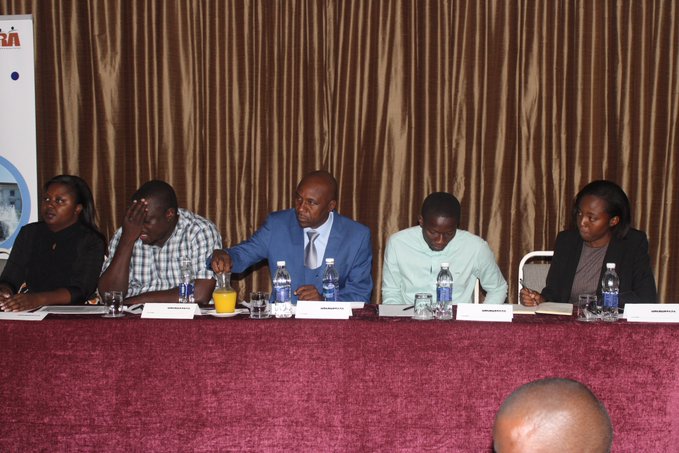By Joyce Mukucha
The Combined Harare Residents Association (CHRA) in partnership with the Women and Law in Southern African (WILSA) hosted a National Water Convention in Harare that was aimed at strengthening coalitions for a strong coordinated national voice on water governance.
Representatives of Residents Associations from Bulawayo, Masvingo and Gweru presented on the water challenges in their respective cities.
In Zimbabwe, water is a basic human right enshrined under section 77 of the new Constitution. The central government as well as local authorities have failed to honour the right to water. Residents of Harare, for example, endure days without access to safe and clean water. This creates health hazards because diseases such as diarrhoea and cholera thrive in poor hygienic conditions.
Critical aspects that have been discussed include load shedding that is leading to erratic water supplies and cities that are expanding with water sources no longer able to cater for all the residents.
Speaking at the CHRA Water Convention in Harare on the 26th of November 2019, the Combined Harare Residents Association Director, Loreen Mupasiri said the water challenge is becoming dire and was not only affecting Harare but the nation as a whole. She said there was need for authorities to pay attention to the need to expand the water infrastructure in light of the growing populations.
Mupasiri revealed that boreholes that were drilled by donor agencies are not able to cater for everyone. At borehole sites there are a lot of cases of victimization of women and young girls including rape cases and sexual harassment. Due to continued water shortages, there has been a sprouting of water barons who are taking advantage of the desperate situation.
“The water crisis needs to be addressed with immediate effect so that we protect the lives of women and girls who are being affected mostly by the challenge with others being physically abused in the places they will be looking for water. We need to come with an advocacy plan so that we plan on how we can come up with alternatives to discuss this issue as we want to engage the Government and other key stakeholders who are influential in as much as the issue of water crisis is concerned,” she said.
In Masvingo, the Council is unleashing debt collectors yet not providing water to residents.
Due to erratic water supplies, residents are now resorting to unsafe water sources and this has exposed them to diseases such as cholera and typhoid.
City fathers are failing to give residents accurate information and the correct picture of the situation on the ground. This has led to serious mistrust between the residents and city fathers. Treated water is being lost due to non-maintenance of water pipes.
Foreign currency shortages is also another challenge that has been singled out to be affecting the provision of safe, potable water to the residents. This has seen the central bank failing to avail funds for procurement of water treatment chemicals to local authorities
Speaking at the same event, Harare Mayor, Herbert Gomba said that the provision of clean and safe water is critical towards attaining a world class city status. He said that as a short term measure, council had acquired 12 water bowsers that have been deployed to different parts of Harare.
Mayor Gomba admitted that council’s billing system was in shambles adding that the council was working with a Chinese firm to address the issue.
A representative from WILSA emphasised that there was need to ensure that justice is equitably accessed, claimed and enjoyed by women and girls in all spheres of life. She also added that water crisis in Mabvuku, Chitungwiza, Caledonia and other high density suburbs was increasing the burden on women who have to wait long hours in the queues.
Climate Change Scientist in the Ministry of Environment, Climate Management Department, and Tatenda Mutasa said that protection of wetlands was imperative. Referring to the Ramsar Convention, he stressed that no development has to be done on wetlands.
He recommended for renewable energy as he urged residents to reduce the dependency on electricity supply.
‘It is of paramount importance to have livelihoods diversification and reduce over reliance on climate sensitive sectors. Let’s protect wetlands and have good water harvesting ways and reservoirs.”
The Programmes Officer for Community Water Alliance Hardlife Mudzingwa, said it was high that Government intervenes and comes up with a tangible solution that addresses water challenges. Composing of Civil Society Organisations, the National Water Taskforce that effectively address water challenges, he said, was essential to respond to the issue of water challenge.
“There is need to have devolution on water service delivery. Let’s have the right to social accountability, all citizens have the right to demand justifications and explanations and corrective action from the state concerning the provision of water when it fails to provide them adequately,” Mudzingwa said.
At international level, the Government of Zimbabwe is increasingly required to answer to actors outside own borders and banks, especially in the context of direct budget support, aid dependency on water projects. Accountability is thus directed outwards with answerability to loaning banks often taking precedence over accountability downward to citizens or to Parliament.
